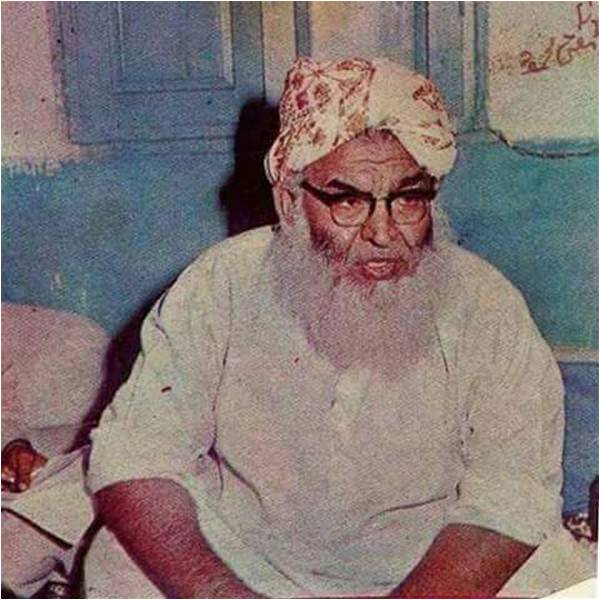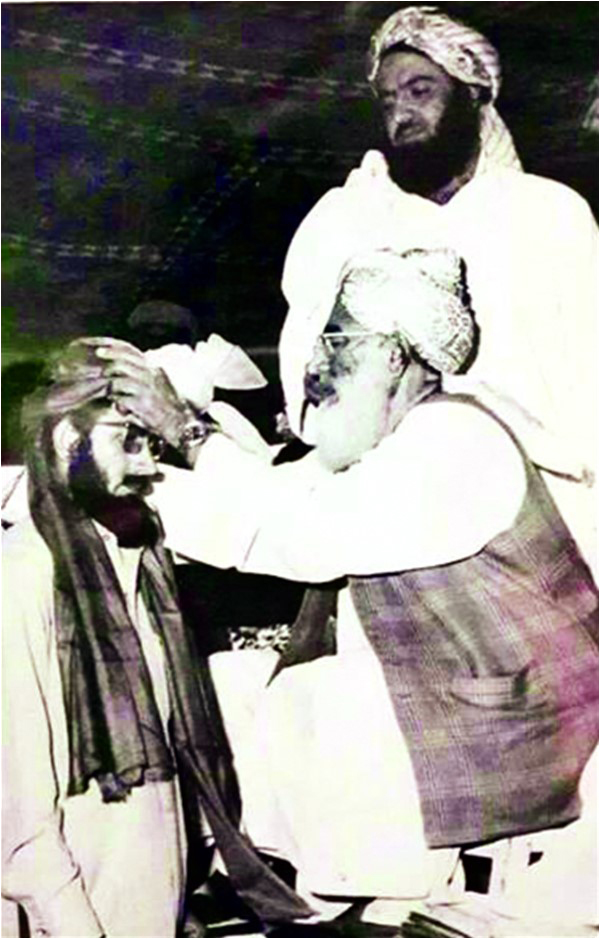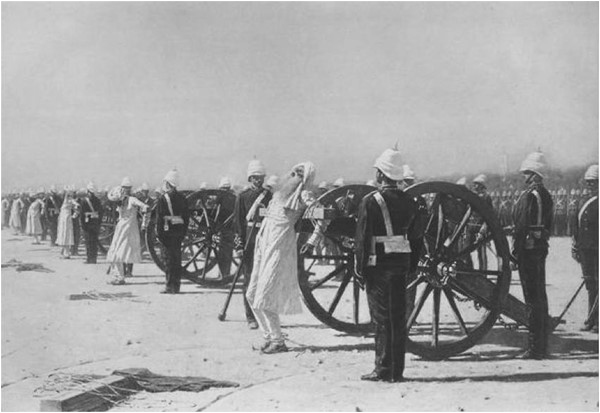
The best way for a religious party to celebrate kosher-style, is of course, with an alami ijtima or international congregation. And so, on April 7, 8 and 9, the JUI-F has estimated that nearly four million men (and it is safe to say that it is unlikely a single woman will be in sight) will descend on Azakhel in Nowshera. The guest of honour is none other than the imam of the Kaaba, Sheikh Abdul Rahman Al-Sudais, who will open the celebrations by leading the Friday or Jummah prayers and in all likelihood also deliver a sermon. And while it is not quite the same thing, you could explain the magnitude of this for Muslims in Pakistan by likening it to the pope coming to Karachi for Christmas. Saudi Religious Affairs minister Saleh bin Abdul Aziz Al-Sheikh has also been invited.

The event has been billed an international congregation as the JUI-F is expecting men from Pakistan, India, Nepal, Bangladesh and the Middle East among other countries to attend. “It is an effort to show solidarity with the Muslim Ummah,” says Mufti Kifayatullah, the deputy amir of JUI-F Khyber-Pakhtunkhwa. The event is expected to cost Rs100 million, reported The News. That money will come from donations, said the party. If each of its 1.6 million members gave 100 rupees, they should be able to manage quite handsomely.
The odd thing is that the JUI-F itself is not 100 years old; it is the Jamiat Ulema-e-Hind or JUH that was formed in 1919. And even if that were to be considered, technically speaking the centenary falls in 2019. But then, we have an election in 2018. What better way to flex some muscle than have a few million men show up to your party? For its part, however, when TFT asked the JUI-F about the dates, it said that the 100-year anniversary is based on the Islamic calendar: 1919 was the Islamic year 1338 and 2017 is 1438.
Origins from JUH to JUI to JUI-F
The JUH’s draws its roots from the work of 18th Century saint Shah Waliullah of Delhi (1703-1762) who started pushing Indians to shake off the yoke of imperialism. From roughly 1808 to 1915, ulema or religious scholars battled the British. Shah Waliullah’s son Shah Abdul Aziz Dehlawi issued an edict, saying that their country had been “enslaved” and they would struggle for independence.
Those who believed in this cause took up arms against the British. They included ulema such as Haji Imdadullah Mohajir Makki, Waliullah’s close disciples Maulana Qasim Nanatawi and Maulana Rasheed Ahmad Gangohi. But the ‘war of independence’ of 1857 proved their efforts were a disaster. “The ‘sepoy mutiny’ led to the death of over 50,000 ‘Ulama’,” writes David Emmanuel Singh, a researcher into Islamic Studies with the Oxford Centre for Mission Studies. “[I]n Delhi alone nearly 500 of them were hanged.” The ulema, known popularly as the maulvis, became synonymous with the term ‘rebel’.

At roughly the same time, a feeling grew in these circles that seminaries or madrassas were needed to keep the Deoband legacy of Shah Waliullah alive. And so, in 1866, Shah Waliullah’s disciples Maulana Qasim Nanatawi (1833-1879), Gangohi, Maulana Fazlur Rahman Usmani and a Sufi, Haji Muhammad Abid of Deoband, opened Dar al-‘Uloom Deoband in a small town by that name, about a six-hour drive from Delhi. It was a simple open-air mosque at the time and its first student was Mahmud al-Hasan. He went on to become known as shaykh al-hind (leader of India) for leading the resistance against British rule. The madrassa would eventually develop a reputation as the al-Azhar of India.
“(Nanatawi) founded the madrassa as a center of education and teaching, to prepare people for the challenges to come and to compensate for the losses of the failed 1857 revolt,” Mahmud al-Hasan is quoted as saying by Hafiz Muhammad Abu-Bakr Sheikh in the book Aseer-e-Malta Hazrat Shaikhul Hind.
As part of resistance to the British, Mahmud formed a government in exile in Madina. It had an amir, ministers and even a president. They tried to win Turkish support. But in 1916, a letter written on a silk cloth, detailing the conspiracy against the British was seized from Mufti Obaidullah Sindhi. It became known as the Silk Kerchief Conspiracy and as a result, over 200 ulema were arrested, including Mahmud, his disciple Maulana Hussain Ahmad Madani, Obaidullah and another ‘co-conspirator’ Maulana Abul Kalam Azad.
By this point, the ulema were learning the hard way that armed resistance needed a rethink if they were to thwart the British. They decided a nonviolent strategy was needed to struggle for freedom and win the support of the people.
Elections
2002: JUI-F taking credits for forming an alliance of religious parties, the Muttahida Majlis-e-Amal, during the 2002 elections. They won 45 National Assembly seats and 16 reserved seats. Maulana Fazlur Rahman became opposition leader. The MMA won a majority in NWFP (now KP) and formed coalition governments in Balochistan and Sindh.
2008: In the 2008 general elections, after the MMA collapsed, the JUI-F used its name and symbol to win seven NA seats, eight in KP and seven in Balochistan. It was a coalition partner in the PPP-led government but left after corruption charges were leveled against its member, the then Minister for Information and Technology.
2013: JUI-F was noted as the fifth largest party of the country by securing 11 seats in the NA. It is now a coalition partner with the PML-N in the center.
Three years later, in 1919, the Jamiat Ulema-e-Hind (JUH) was formed by the men of Darul Uloom Deoband madrassa. Mahmud was in prison in those days and so the JUH started campaigning for his release. A year later, the JUH launched its non-cooperation movement and by 1921 many of them were imprisoned. The party decided that foreign goods would be boycotted. By 1924, Mahmud’s student Madani was calling for the complete independence of India.
Interestingly, there was a split in the JUH in 1945 with the creation of the first entity to use the name Jamiat Ulema-e-Islam (JUI). This was the work of Maulana Azad Subhani who wanted his JUI to be like the religious wing of the Muslim League. He was joined by Shabbir Ahmad Usmani, one of the Hadith teachers at Dar al-‘Uloom Deoband, who had developed a disagreement with the others over the division of India, according to a JUI-F activist, researcher Sadeeq Muhammad from Lower Dir. In fact, Usmani grew attracted to the idea of Pakistan, as espoused by the Pakistan Resolution of March 23, 1940. He quit the madrassa. But then, Usmani formed his own party in 1947 and called it the Markazi Jamiat Ulema-e-Islam (MJUI). It later went on to play a role in the passage of the Objectives Resolution of 1949, which gave the Islamic foundation to Pakistan’s future constitutions. Subhani’s JUI, however, withered away.

The pre-Partition JUH had opposed the idea of Pakistan, so post-Partition, its activists who ended up living in what became Pakistan, were not regarded well. They were called the ‘Congressi Mulayan’, says Sadeeq Mohammad. They lay low for a long time and only took part in events organised by Usmani (who made the MJUI).
The JUH men who ended up being in the ‘new’ India were thus separated from their fellow JUH men in Pakistan. One of them was Mahmud’s student Madani (who was imprisoned in the silk kerchief affair).
It was only by 1952-53 that he re-established contact with JUH men in Pakistan. They were disciples such as Maulana Ahmad Ali Lahori, Maulana Ghulam Ghaus Hazarvi. “Now Pakistan is a reality,” Madani wrote to them. “You should accept [this] and this is now your country.” But then he went on to revoke their membership of the JUH, India. Maulana Mahmud al-Hasan remained in India. Madani remained the amir of the JUH and led the party until his death in 1957.
The ex-JUH men in the newly created Pakistan had no choice but to form their own entity in 1956. They decided to appropriate the old name of Jamiat Ulema-e-Islam (JUI), which had been created by Subhani. Lahori became its first amir and an aalim from Dera Ismail Khan, Mufti Mahmood (no link to Mahmud al-Hasan) was made deputy head. This Mufti Mahmood is the father of the man we know today as Maulana Fazlur Rahman.
After Lahori’s death in 1962, Mufti Mahmood took over the JUI in Pakistan as caretaker amir, explains JUI-F’s amir in FATA Mufti Abdul Shakoor. By 1980, however, another split took place and this led to the creation of the JUI-Samiul Haq and JUI-Fazlur Rahman (JUI-F) as we know them today.
Samiul Haq is the son of Maulana Abdul Haq, the founder of Darul Uloom Haqqania, Akora Khattak. (Abdul Haq was elected thrice to the National Assembly starting 1970.) Differences between Maulana Samiul Haq and the rest of the JUI party leaders had surfaced, according to Waqas Khan, who runs the JUI social media pages. “He did not favour the JUI’s decision to join the Movement for the Restoration of Democracy against General Zia’s regime,” he says. Another disagreement was over jihad in Afghanistan; a majority or leaders was of the view that the JUI should not play any role in the war against Russia in Afghanistan? as it was a political issue. But Samiul Haq felt they had to. The split widened with Mufti Mahmood’s death.
Maulana Mahmud al-Hasan (1851-1920)
One of the key founders of the JUH was born in 1851 in Bareilly in Uttar Pradesh to a renowned scholar Maulana Zulfiqar Ali. His father Maulana Zulfiqar Ali was serving in the Education Department as Inspector of School under East India Company in that region. During the Rebellion of 1857, he was with his father in Meerut. Mahmud received traditional Islamic learning and Arabic and Urdu languages and went to Darul Uloom Deoband when it was newly established in 1866. After his basic studies (1869-70), he was taught Hadith by Nanatawi and graduated in 1873.
Maulana Samiul Haq had expected to be considered ‘the next in line’ after Mufti Mahmood and to be accorded the same status as him. But, according to one version of events, during Mahmood’s funeral, some people placed the turban on Maulana Fazlur Rahman’s head instead. This was intolerable for Samiul Haq as he considered Fazlur Rahman junior, having been his teacher.
Such was the fate of JUI-S, however, that it weakened over the years. Currently, it does not have the same standing as the JUI-F. In fact, one of Samiul Haq’s own relatives, Maulana Anwarul Haq of the famous Darul Uloom Haqqania is not a member of his party but belongs to the rival JUI-F.
And so, the JUI-F was subsequently led by several men (Siraj Ahmad Dinpuri, Hamid Mian, Abdul Karim) before Fazlur Rahman became its amir.
Current politics
The JUI-F has been a party which uses religion as a tool for politics, argues Shamim Shahid, a Peshawar-based journalist. “It has followed the politics of give and take since Mufti Mahmood’s time. It was part of the MRD but at the same time had good relations with Zia ul Haq.” Since 1990, it has been an ally of every government overtly or covertly. “When the Taliban emerged in the early 1990s in Afghanistan, the JUI-F leadership was silent but as soon as they formed the government, the party leaders starting supporting it.” He adds that JUI-F activists always keep contacts with the Pakistani Taliban; in fact a number of Taliban leaders were affiliated with the JUI-F in their past. They do not disconnect after joining the Taliban. “The Taliban have dealt with a number of ransom cases thorough the leaders of the JUI-F,” he adss. “The party members always avoid openly condemning Taliban activities. They parry questions from the media when asked if they condemn terrorist attacks.”
Today the JUI-F stands with the ruling Pakistan Muslim League-N. “As Nawaz Sharif says that he want to make Pakistan a liberal country, and Maulana Fazlur Rahman is his coalition partner, the alliance with the PML-N shows that the JUI-F wants to promote the politics of liberalism and progress,” says Waqas Ahmad, the JUI’s social media pages manager.
Strongholds
The southern districts of Khyber-Pakhtunkhwa have always been JUI-F strongholds. In Hazara division they have voters in Pashtun-dominated areas such as Battagram, Kaladaka etc. They are focusing on some parts of Sindh. The JUI-F feels that the PPP’s poor performance has opened up space for it. It is weak in the Punjab. PTI has good representation in Pashtun dominated areas of Balochistan and tribal areas.
The JUI-F has always held sway in Fata but was recently unhappy with the government’s decision to merge it with KP. It feels that if a merger had been an option it should have been decided according to the wishes of the tribal people; did they want a merger or a separate province or want remain as they were with some reforms. “The fate of FATA should be decided by its people not by others,” says Waqas Ahmed. “It wants the displaced people to return home before any decision is made about their future.”
The writer is a journalist based in Peshawar and tweets at @tahirjourno
References: Bees Baray Musalman, Karwan-e-Ahrar, Hafiz Muhammad Abu-Bakr Sheikh’s book “Aseer e Malta Hazrat Shaikhul Hind”, Barbara Metcalf’s “Husain Ahmad Madani: The Jihad for Islam and India’s Freedom”, Aalami Sad Sala Ijtima, Awar es ke Maqasid, a booklet by Maulana Gul Naseeb Khan, the official websites of Darul Uloom Deoband, Jamiat-Ulama-i-Hind, JUI-F, Darul Uloom Haqqania Akora Khattak, JUI Dera Ismail Khan. Official social media pages of the JUI-F. Pictures taken from JUI DiK websites and some collected from JUI-F activists. Professor Rahmul Qadar in Rawalpindi also kindly obliged with images.

